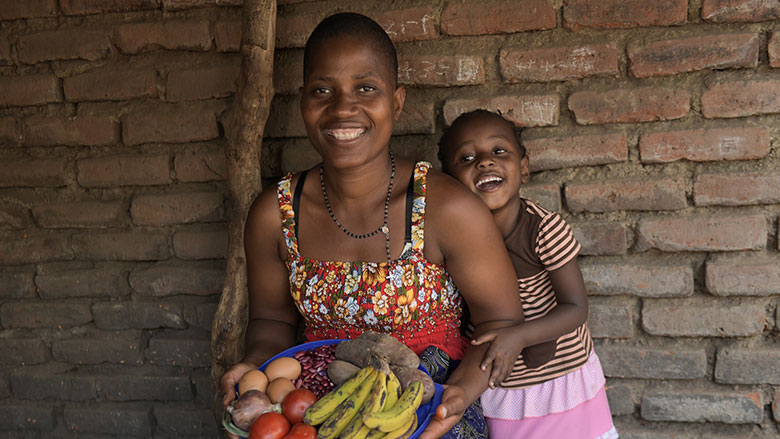LILONGWE, December 12, 2019—High rates of stunting and malnutrition in children under five could curtail efforts to increase investments in Malawi’s young people to help them become productive members of society, a new World Bank report says.
The 10th edition of the Malawi Economic Monitor (MEM), Strengthening Human Capital through Nutrition, observes that stunting significantly impairs children’s future development and health, subsequently diminishing the country’s economic and social development. The MEM identifies strategies that could be implemented to promote optimal maternal and child health, healthy environments, and early access to better food and care, especially in the first 1,000 days of life.
“Children born in Malawi today will on average be less than half as productive as they would have been with access to good health and quality education.” said Greg Toulmin, World Bank Country Manager for Malawi. “Investing in nutrition is an important part of a multisectoral approach to address this shortfall, and build Malawi’s human capital, so that the country can compete in the future, global economy.”
- Low birthweight, diarrheal disease, inadequate diet for the child and household practices are the immediate factors associated with stunting in under-five children in Malawi, and poor nutrition is increasingly leading to maternal and child mortality. To address these underlying causes, the MEM proposes two broad strategies to be implemented to promote optimal maternal and child health, healthy environments, and early access to better food and care:
- Interrupt the intergenerational transmission of stunting by prioritizing women’s health and nutrition: To achieve this, it is vital to reduce or eliminate early marriage; to delay pregnancy among adolescents; and to ensure pregnant women have optimal nutritional status that is sustained throughout pregnancy
- Improve livelihoods and resilience to promote access to and consumption of diverse diets among young children, especially during the complementary feeding period: This will be achieved through strategies that promote food security, dietary diversification, and healthier environments for children.
The MEM explains that much of the improvement to children’s nutritional status in Malawi can be attributed to concerted efforts by the government and development partners, including designating agriculture and nutrition as key national policy priority areas.
The report also identifies three interrelated areas as underlying factors in children’s poor nutrition and feeding habits; lack of access to nutrient dense foods, especially in rural and remote areas, inadequate feeding practices at the household level, and widespread food insecurity. Therefore, the report recommends improving livelihoods and resilience to promote access to and consumption of diverse diets among young children, especially during the complementary feeding period be strengthened and scaled up.
“Continuing the downward trend of stunting in Malawi requires multisectoral collaboration, resources and efforts in sectors such as agriculture, health, early childhood education and social protection, to ensure the key determinants of stunting and undernutrition in Malawi are addressed,” said Julie Bergeron, World Bank nutrition specialist and co-author of the MEM.
The MEM further recommends that Malawi continue to make strong investments in education to develop a more productive workforce needed for structural transformation. Although education is the highest-funded sector in the national budget, spending efficiency could be improved and resources targeted to schools and students with the greatest need.
Economic Outlook
In monitoring the recent economic development, Malawi’s economy is projected to grow by 4.4%in 2019, up from 3.5% in 2018. The MEM notes that with Malawi’s economic growth recovering and single digit inflation, the government has an opportunity to rein in fiscal deficits and reduce domestic debt to contain interest rates and avoid crowding out private sector investment, as well as increase public investment.
Public domestic debt increased to 30.9% of gross domestic product by June 2019, up from 28.4% in June 2018. Therefore, the report notes that structural reforms such as transforming the relationship with the private sector to create more productive jobs for Malawi's rapidly growing population should be implemented to strengthen growth and diversification and increase incomes.
“Government is facing a key opportunity to rein in fiscal deficits and reduce domestic borrowing. This would support growth and revenue mobilization, while also enabling the higher levels of public and private investment that are needed to increase job creation” says Patrick Hettinger, Senior Country Economist and lead author of the MEM
The report warns that achieving the budgeted deficit of 2.5% for FY2019/20 will be a major challenge as the first step towards achieving this is to prepare realistic revenue projections for the budget and rationalize recurrent expenditure and maintaining fiscal discipline to keep spending within the budget envelope.
